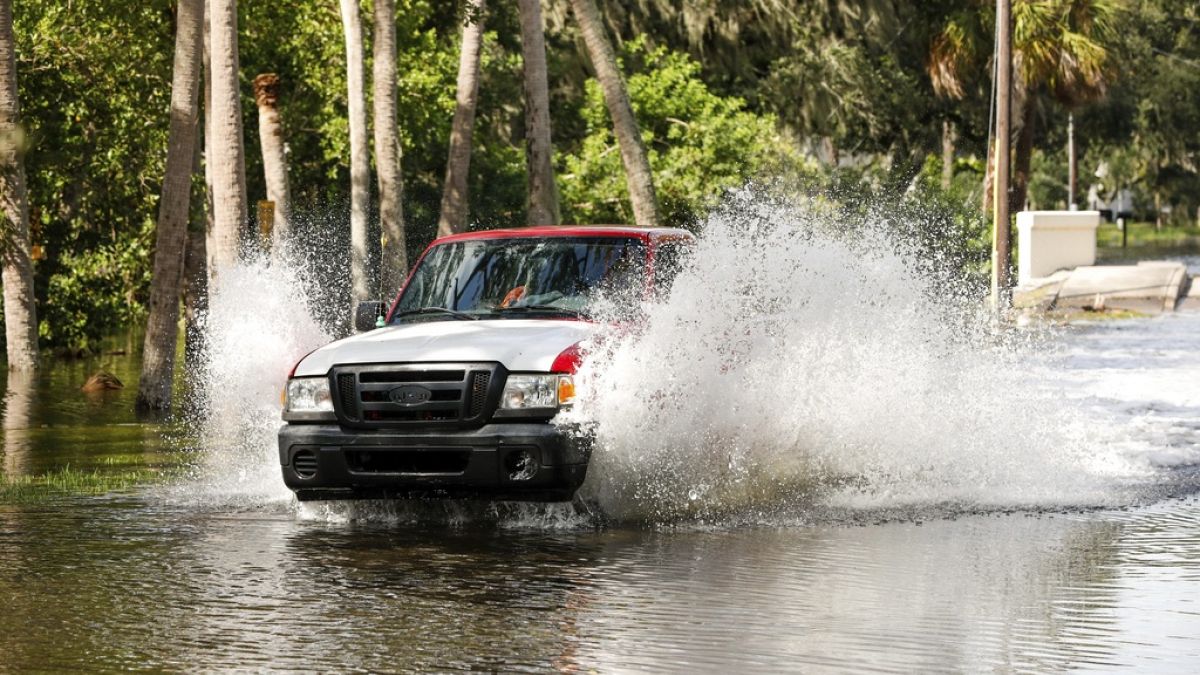Hurricane Helene has left a trail of destruction across several states after making landfall overnight in northwestern Florida as a category 4 storm. The storm, which has caused widespread power outages and evacuations, has resulted in at least five fatalities. One person was killed after a sign fell on their car in Florida, while another two lost their lives in a possible tornado in south Georgia. The other deaths, in North and South Carolina, were caused by trees falling onto homes. Governors in Florida, Georgia, Alabama, Virginia, and North and South Carolina have declared emergencies to address the impact of the storm, which is considered one of the largest hurricanes to hit the Gulf Coast. The hurricane has caused extensive destruction in southeastern USA, with over 3 million people left without power.
Following its landfall in Florida, where it reached winds of 140 mph, Hurricane Helene has weakened to a tropical storm as it moved over Georgia. Despite this, forecasters had warned about a “nightmare” storm surge, in addition to dangerous winds and rain threatening much of the southeastern US. By Friday morning, nearly 3.2 million people were reported to be without power in Florida, Georgia, South Carolina, North Carolina, and Tennessee. In Valdosta, Georgia, where the storm struck, dozens of residents sought shelter in a hotel lobby as they weathered the strong winds and rain outside. For Fermin Herrera, a resident of Valdosta who had experienced two previous storms in the past year, the experience was familiar but unsettling.
Helene is the eighth named storm of the Atlantic hurricane season, which began in June. There were concerns regarding the impact of the storm surge, as well as dangerous winds and heavy rainfall across the region. In response, governors in several states declared emergencies to bolster their ability to respond to the storm’s aftermath. Valdosta, Georgia, which had been hit by two storms in the past year, was once again affected by Hurricane Helene. Despite the challenges, residents like Fermin Herrera expressed resilience and a sense of preparedness in facing the storm.
The impact of Hurricane Helene has been significant, with millions left without power and widespread destruction across several states. The storm, which has resulted in fatalities and extensive damage to homes and infrastructure, has prompted emergency declarations from governors in affected areas. As the storm made landfall in Florida as a category 4 hurricane before weakening to a tropical storm over Georgia, residents braced for strong winds, heavy rain, and potential flooding. The resilience shown by communities affected by the storm, such as Valdosta, Georgia, highlights the strength and determination of those impacted by natural disasters.
In the aftermath of Hurricane Helene, attention has turned to recovery efforts and rebuilding in the affected regions. The storm, which caused chaos and devastation across several states, has left a lasting impact on communities in its path. The widespread power outages, property damage, and loss of life underscore the urgency of responding effectively to natural disasters and ensuring the safety and well-being of residents. As the Atlantic hurricane season continues, the experience of facing powerful storms like Helene serves as a reminder of the importance of preparedness and resilience in the face of adversity. The lessons learned from Hurricane Helene will guide future efforts to mitigate the impact of such disasters and protect the lives and livelihoods of those at risk.











